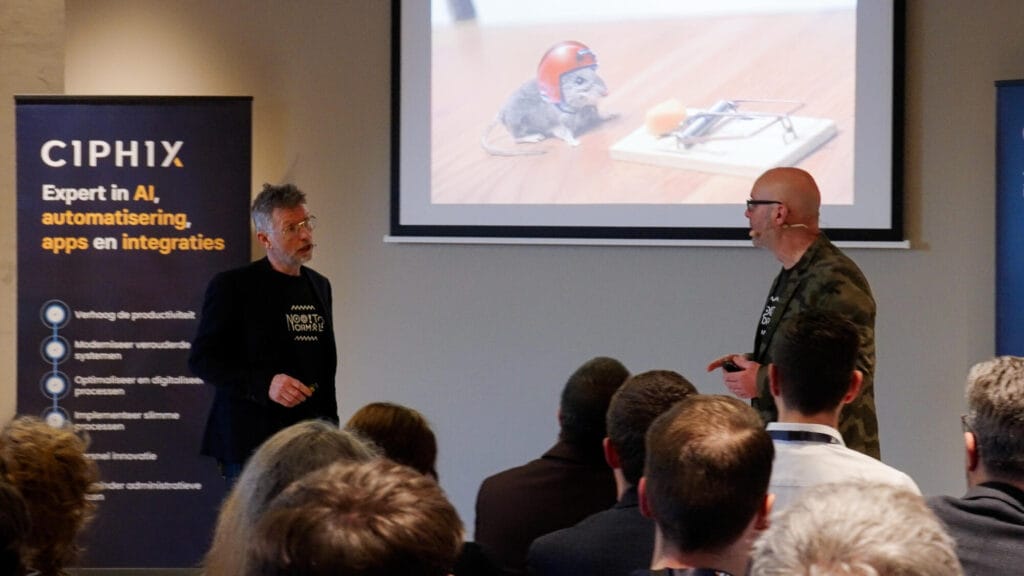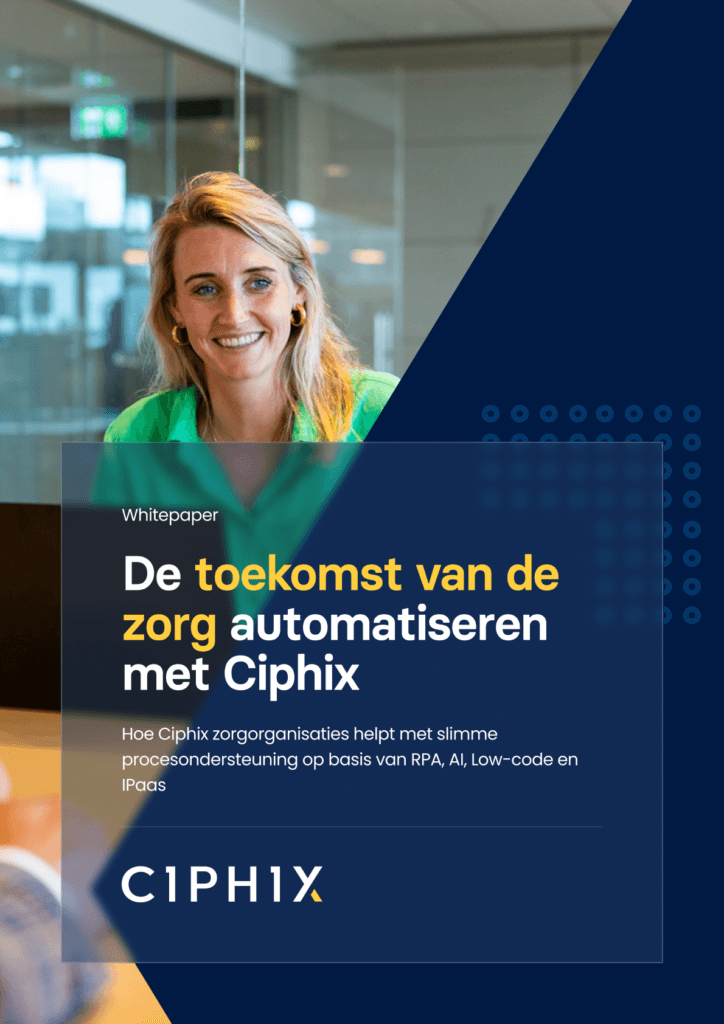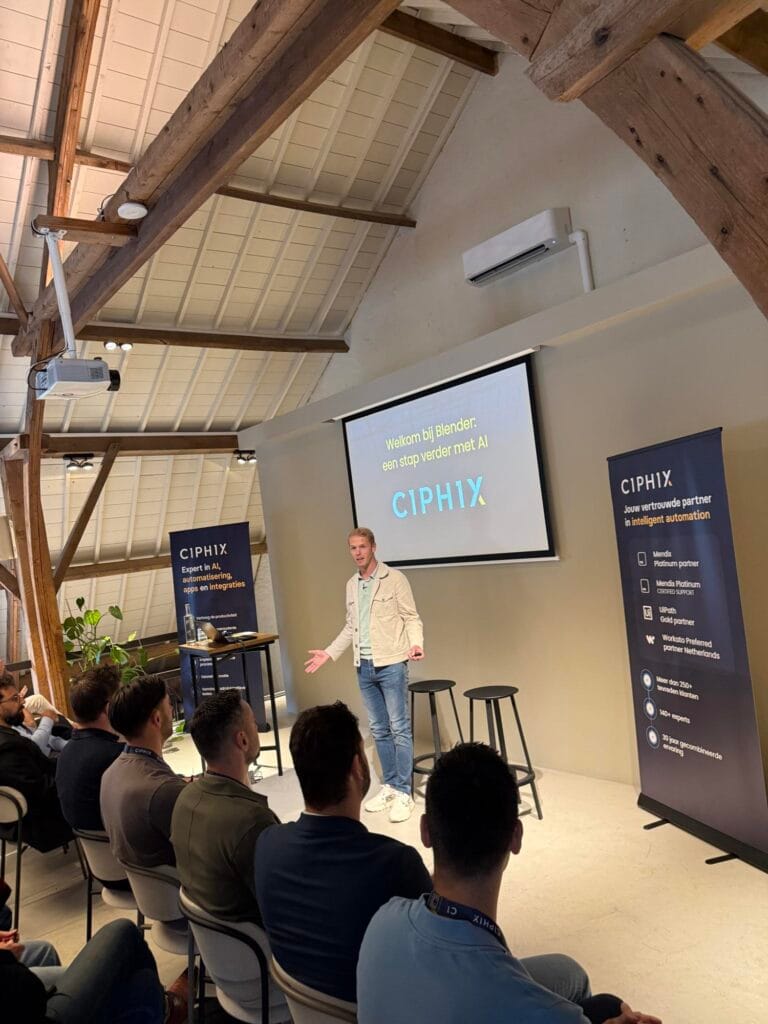Process Intelligence: discover bottlenecks and improve where it really counts
Teams work extremely hard. Yet processes run stiffly. Tasks fall between the cracks, delays pile up, and no one knows exactly where things go wrong. The dashboards? They give nice figures but no answers.
What you need is not yet another report. You need insight. Process insight.
Process Intelligence opens the black box of your processes. No more guesswork, but facts. No more fighting symptoms, but getting to the heart of the matter. So that you can move forward again with control, peace of mind and results.
What is Process Intelligence?
Process Intelligence is an advanced form of process analysis and process optimization. Instead of relying on assumptions or loose snapshots, you get continuous insight into how processes really work.
It shows exactly where delays, errors or waste occur in real time. This enables you to respond quickly to changes, take advantage of opportunities and make structural improvements.
“What you need is not yet another report. You need insight. Process insight.”
What does Process Intelligence provide?
Operational Excellence
Real-time process models
Bridge between Business & IT
A shared process view that both Business and IT understand.
Return on Investment within a few months
Process Intelligence pays for itself quickly through direct insight into bottlenecks and action on concrete improvement opportunities.
From processes that run, to processes that contribute
At Ciphix, we understand that systems are becoming increasingly complex and collaboration between teams is essential. This is where Process Intelligence provides the opportunity to view processes in a new, data-driven way.
Our approach makes it possible to work on improvement organization-wide, with a shared view of what is going on and where opportunities exist. We believe that real progress begins when everyone sees the same process and knows together how to improve.
Whether supporting an existing team or laying a foundation for data-driven work: Ciphix ensures that processes not only function, but also contribute to tomorrow’s ambitions.
“Real progress begins when everyone sees the same process and knows together how to make it better.”
What does Process Intelligence look like?
This video (no sound) briefly explains Process Intelligence.
Concrete practical applications
Procurement
Free text fields in purchase requisitions often lead to discrepancies, incorrect orders or manual corrections further down the process. With Process Intelligence, this behavior is made transparent, after which it is possible to automatically link requests to the correct catalog items. This prevents errors and increases standardization.
Billing
Discrepancies between purchase orders, deliveries and invoices often cause delays in approval and payment. Process Intelligence makes these discrepancies visible and enables common scenarios to be automatically approved, making processing faster and more consistent.
Inventory Management
Inaccurate inventory registration often leads to emergency deliveries, overstock or downtime in daily operations. With Process Intelligence, you uncover discrepancies between system data and physical inventory so that you can structurally improve inventory reliability and avoid unnecessary costs.
Order Processing
Orders are delayed due to missing data or manual approvals. Process Intelligence shows where and what type of orders get stuck and allows you to automate routine tasks, such as validation and forwarding, to reduce lead times.
Production
Unexpected downtime in production is often caused by disruptions that are noticed too late. Process Intelligence makes this behavior visible and makes it possible to set up automatic notifications or rescheduling to keep production flow stable.
Auditing
In practice, processes often deviate from established guidelines or internal controls, without this being visible in reports. With Process Intelligence, you can automatically check whether processes comply with audit rules, such as four-eyes principle, approval flows or threshold amounts. In this way, deviations become immediately visible, risks are managed faster and audit work is partially automated.
Frequently Asked Questions
What is Process Intelligence (PI)?
Process Intelligence is a technology that allows organizations to gain insight into how processes actually run within the use of IT systems (ERPs, CRMs, TMS etc). Analyzing existing process data automatically creates a complete overview of process flows, including deviations and inefficiencies. Instead of manual analyses or assumptions, Process Intelligence shows what is really happening – thus providing a powerful starting point for improvement and optimization.
How is PI different from Business Intelligence (BI)?
Whereas Business Intelligence (BI) is often limited to averages or statuses, Process Intelligence shows exactly where processes deviate, slow down or get stuck. This insight helps organizations make informed improvement decisions, strengthen collaboration between teams and continuously work on effectiveness and quality.
What can I apply PI to?
Process Intelligence is broadly applicable in virtually all business processes where structure, repetition and data are involved. Common application areas are:
– Procurement – discrepancies in order requests, free text fields, supplier performance
– Finance – invoice processing, 3-way matching, payment delays
– Supply Chain – order processing, lead times, inventory management
– Order-to-Cash – order entry errors, billing issues, payment delays
– Manufacturing – production schedule disruptions, downtime, material shortages
– HR – onboarding, job assignment, approval flows
Book your call to learn more about implementing Process Intelligence.
Who is PI intended for?
It is deployed by operations teams, process managers, continuous improvement specialists and IT departments. Both business and IT professionals can work with it because it connects insight and action based on actual data.
Is PI only for large organizations?
No, Process Intelligence is just as valuable for mid-sized organizations. Especially companies with growth ambitions and limited resources benefit from the targeted insights PI offers. Thanks to modular implementation and scalability, starting small is easy.
How does PI work?
Process Intelligence works by collecting data from existing systems, such as ERP or CRM software. It works system-independently and can analyze data from virtually any business platform. As long as processes leave digital traces, Process Intelligence can analyze them. Based on this data, it automatically builds a complete picture of how processes work in practice.
Where does PI fit within the ranks of other emerging technologies?
Process Intelligence is the connecting link between data analysis, automation and decision making. Where technologies such as RPA perform tasks and AI supports complex decisions, Process Intelligence focuses on insight: making visible the processes underlying them. In doing so, it acts as a foundation for data-driven work, and enhances the effectiveness of other technologies such as RPA, AI and low-code platforms.
In other words: insight first, then impact – Process Intelligence makes other technologies smarter and more effective.
Is PI expensive?
The cost of Process Intelligence depends on the scale and complexity of the processes, but in practice the investment often pays for itself quickly. Because it provides immediate insight into improvement opportunities and waste, it quickly leads to measurable savings. Moreover, it is modularly deployable, making it easy to start small and scale up.
To begin, we will always suggest a pilot, there is no upfront software cost for this.
What are the first steps to get started with PI?
The first step is to determine the process area with the most optimization potential. Next, data sources are mapped and linked. After the initial analysis, the first insights can quickly be converted into improvement actions. Often a pilot or proof of concept is started.
Book your call to learn more about implementing Process Intelligence.
Does my team need technical knowledge to work with PI?
No, Process Intelligence is designed for both business and IT users. Analyses and dashboards are built visually and intuitively by Ciphix.
Technical support is only required during initial data linking and configuration.
This is how we help you
Don’t wait any longer
Are complex processes getting in the way of your digital transformation? We will help you further.























